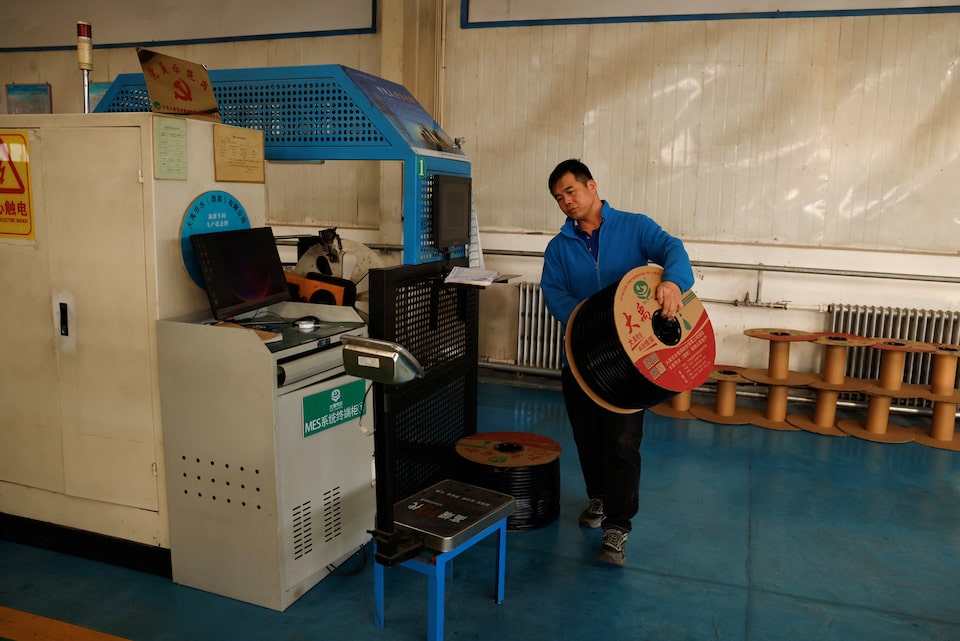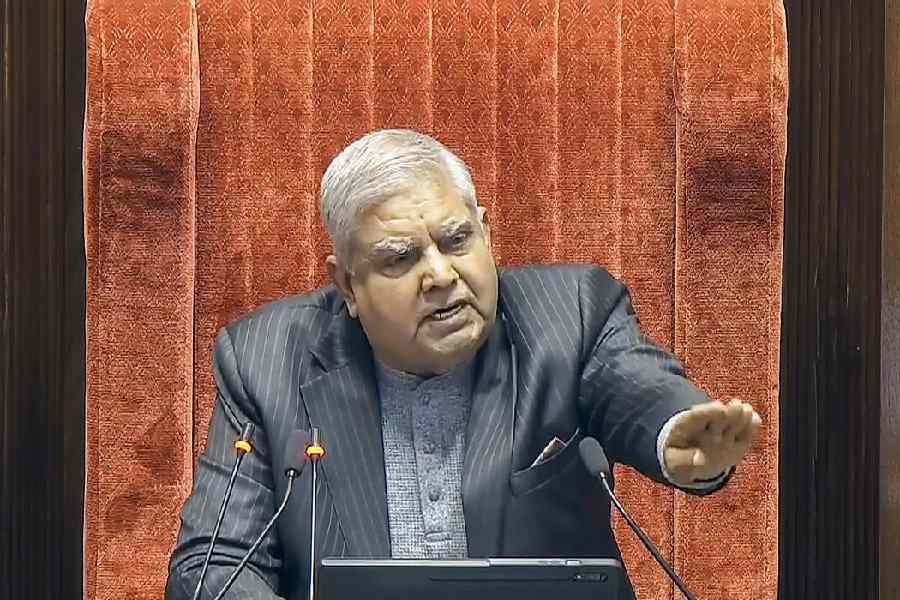A worker carries a roll of drip tape at a factory of DAYU Water Group Co, in Jiuquan, during an organised media tour in Gansu province, China October 18, 2024. REUTERS
Summary
- Official manufacturing PMI at 49.1 in Jan, weakest since Aug
- Non-manufacturing growth in January slows to 50.2
- Beijing faces lopsided export-led recovery
BEIJING, Jan 27 (Reuters) – China’s manufacturing activity unexpectedly contracted in January, an official factory survey showed on Monday, its weakest since August, keeping alive calls for stimulus in the world’s second-largest economy.
The official purchasing managers’ index (PMI) contracted to 49.1 in January from 50.1 in December, below the 50-mark separating growth from contraction and missing a median forecast of 50.1 in a Reuters poll.
China’s $18 trillion economy hit the government’s growth target of “around 5%” over 2024 but in a lopsided fashion, with exports and industrial output far outpacing retail sales and unemployment remains elevated.
U.S. President Donald Trump’s threat to impose a 10% punitive duty on Chinese imports on Feb. 1 to push Beijing to clamp down on trafficking of the chemical precursors of fentanyl risks exposing how reliant its economy is on exports for growth.
China’s trade surplus reached almost $1 trillion last year, as producers looked to shift stocks overseas to counter weak domestic demand. The country’s outbound shipments were further assisted by factory gate deflation and a weak yuan, making Chinese goods more competitive in global markets.
But back at home, falling prices ripped into corporate profits and workers’ incomes.
The non-manufacturing PMI, which includes services and construction, slowed to 50.2 from 52.2 in December.
Policymakers have promised to roll out further stimulus over 2025, but analysts worry it will remain focused on industrial upgrades and infrastructure, rather than households, which could worsen overcapacity in factories, weaken consumption and increase deflationary pressures.
Beijing has pledged to prioritise revitalising domestic demand but has revealed little apart from a recently-expanded trade-in programme that subsidises purchases of cars, appliances and other goods.
Chinese leaders are also hoping policy support measures late last year will increase demand in the struggling property sector and ease developers’ financial difficulties, which significantly impacts domestic demand and local government finances.
Getting Chinese consumers to spend again would reduce producers’ exposure to Trump’s tariff threats, which on the campaign trail he said could be as high as 60%.
Analysts polled by Reuters forecast the private sector Caixin PMI remained at 50.5. The data will be released on Jan. 31.
Reporting by Liz Lee, Yukun Zhang and Joe Cash; Editing by Sonali Paul





